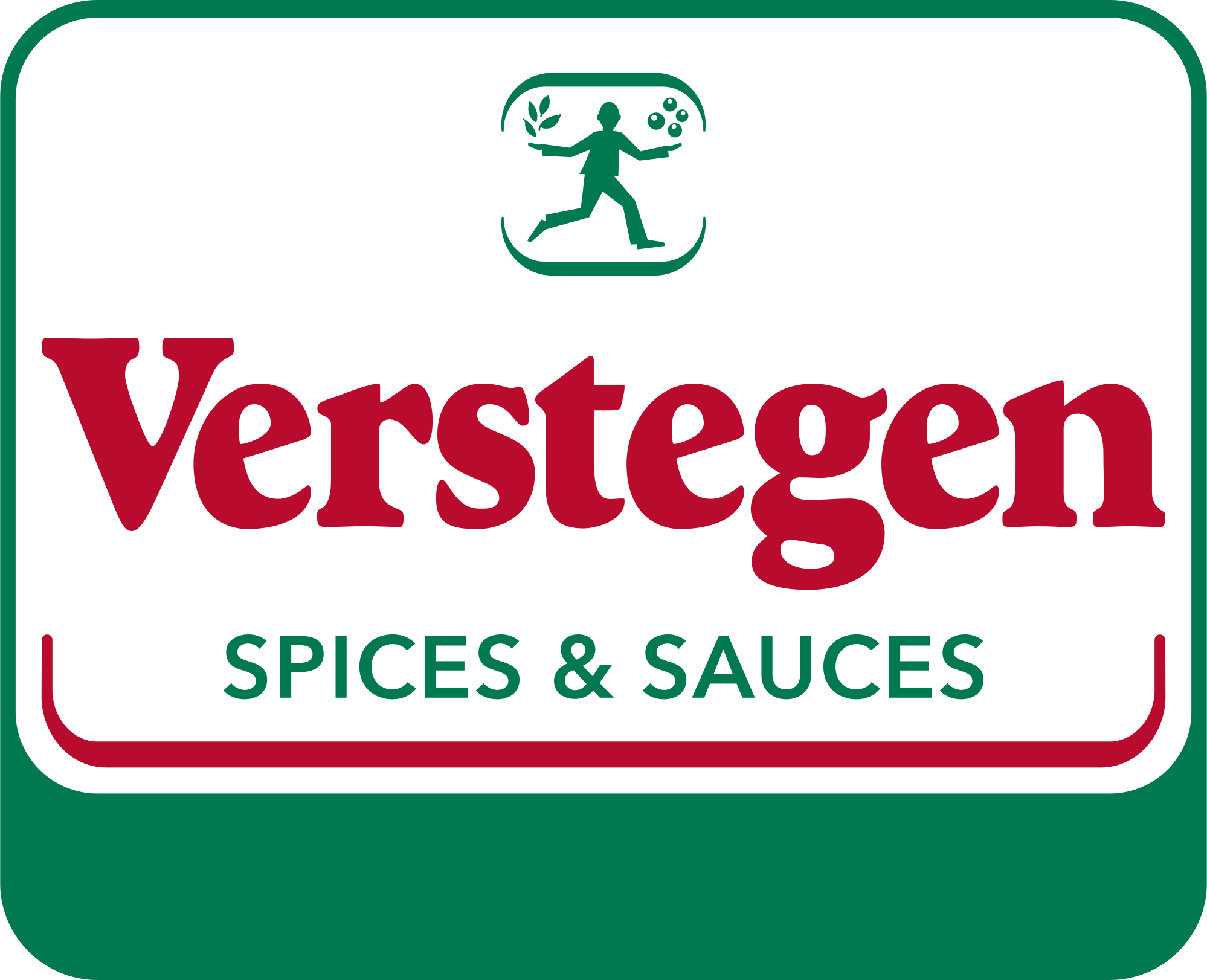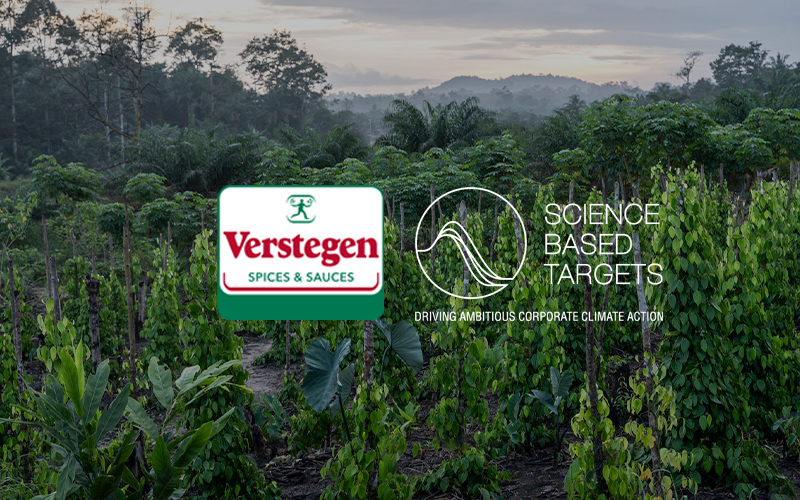Press release: Verstegen takes next step in sustainability ambitions with SBTi-validated climate targets
Rotterdam, 27 March 2025 – Verstegen Spices & Sauces has officially had its climate targets validated by the Science Based Targets initiative (SBTi). This validation underscores the company’s ambition and marks an important step towards further reducing its CO₂ footprint and contributing to a more sustainable future.
Verstegen aims to become a Net-Zero company by 2050. As an interim target, the company plans to reduce its direct emissions (Scope 1 and 2) by 90% by 2035, compared to 2018 levels. This is an ambitious goal that goes beyond what is common in the industry. Since 2018, Verstegen has already reduced its Scope 1 and 2 emissions by 42%. For indirect emissions (Scope 3), Verstegen follows the guidelines of the Paris Climate Agreement.
To address this, Verstegen has set additional targets for emissions related to agriculture and deforestation, known as FLAG targets (Forest, Land and Agriculture). The company aims to achieve deforestation-free supply chains by 31 December 2025 and to reduce its FLAG emissions by 30% by 2030, compared to 2022 levels.
A key part of this approach is the regenerative agriculture programme, which launched in 2020. This programme encourages suppliers to minimise the use of pesticides and artificial fertilisers, and focuses on improving soil health. Through this approach, Verstegen aims to both reduce and store CO₂ in the soil.
The validation of these climate targets by the SBTi confirms that Verstegen’s policies genuinely contribute to a sustainable future. Increasingly, customers recognise the importance of this validation and are eager to take steps together towards a more sustainable food chain. Verstegen actively supports this positive momentum, which is essential to achieving shared impact.
Marianne van Keep, CSO at Verstegen, said:
“Today we take another important step in our sustainability journey: our climate targets have been officially validated by the Science Based Targets initiative. We know our accelerated targets for Scope 1 and 2 are ambitious, but with our current efforts, we are confident we will reach them. The biggest challenge lies in Scope 3. We cannot tackle this alone – which is why collaboration is essential. We invite our supply chain partners to accelerate the transition together, share data, and work towards a sustainable future. Only through long-term cooperation and shared responsibility can we achieve real change. This is how we will truly make a difference in the world.”

